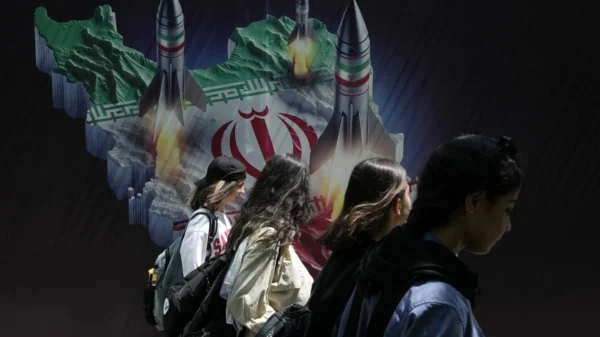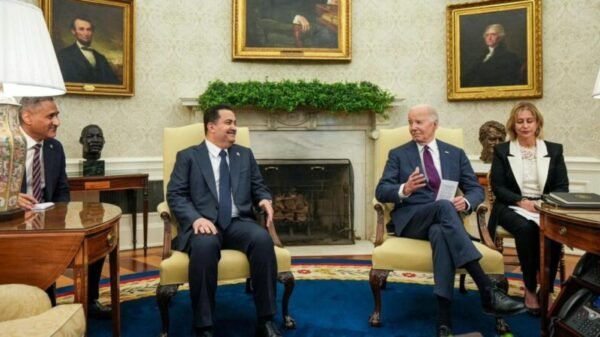Easter Concealment: Christians in Iran Practice in Secrecy
In the privacy of her living room, Tina, whose name has been changed for safety reasons, creates a modest yet meaningful Easter display with tealights, pastel-colored eggs, candles, and a small wooden cross. It’s a quiet acknowledgment of the holiday for Tina and her husband, who secretly converted to Christianity in Iran, a country where practicing their faith openly is prohibited by law.
Living under the constant threat of arrest, Tina and her fellow Christians navigate their faith with caution. In Iran, religious minorities like Armenian and Assyrian Christians have limited rights to practice their religion, while converts from Islam must worship clandestinely in house-churches. The recent uptick in government raids and harsher penalties for practicing Christians has forced Tina and others to take extra precautions, meeting in small, rotating groups in various locations to minimize the risk of detection.
The consequences of discovery are severe. Tina recounts instances where her children inadvertently revealed their family’s Christian beliefs, resulting in reprimands from school authorities and instances of blackmail targeting her husband’s business. Despite these challenges, Tina considers herself fortunate to have evaded arrest thus far, but she acknowledges the harsh reality faced by many others who have been imprisoned for their faith.
Mehdi, whose name has also been changed, shares his harrowing experience of imprisonment and constant surveillance after being arrested for practicing Christianity. He describes enduring solitary confinement, intense interrogations, and the lasting psychological toll of his ordeal. Released with a political label that hindered his ability to live a normal life, Mehdi ultimately fled Iran with his family to seek asylum elsewhere.
According to advocacy group Article 18, arrests of Christians in Iran have increased, with longer prison sentences and higher bail amounts becoming the norm. Mansour Borji, the organization’s founder, attributes this crackdown to the Iranian government’s broader policy of suppressing dissent, which has also affected religious minorities.
In the wake of Mahsa Amini’s tragic death in custody, sparked by accusations of improper hijab, Iran witnessed widespread protests and increased scrutiny of state violence. Despite the risks, Mansour notes a growing defiance among Iranians, including a rise in conversions to Christianity and other faiths.
As Tina prepares to celebrate Easter, she and her community remain vigilant, aware that religious holidays often coincide with increased government surveillance and potential arrests. Despite the challenges, they refuse to let fear dictate their faith, finding solace and strength in their clandestine gatherings and shared beliefs.


































Comment Template